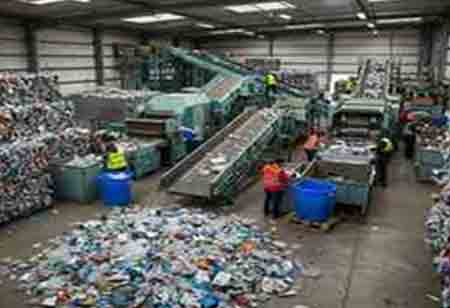Thank you for Subscribing to Environmental Business Review Weekly Brief
The Impact of Environmental Regulations on Sustainable Business Practices in Europe
Successfully navigating the shifting landscape of European environmental regulations is essential for businesses aiming to stay compliant and achieve a competitive advantage.

By
Environmental Business Review | Monday, September 01, 2025
Stay ahead of the industry with exclusive feature stories on the top companies, expert insights and the latest news delivered straight to your inbox. Subscribe today.
FREMONT,CA: Navigating the dynamic landscape of European environmental regulations is vital for businesses striving to remain compliant and stay ahead in a competitive market. The European Union’s strong focus on sustainability—highlighted by initiatives like the European Green Deal—is driving substantial regulatory shifts that affect a wide range of industries.
Key Regulatory Drivers
The European Union has implemented regulatory measures to advance sustainability and environmental responsibility across industries. The European Green Deal is at the forefront, a comprehensive framework to achieve climate neutrality by 2050. Covering policies on climate change, circular economy, biodiversity, and pollution, it is the foundation for many sector-specific regulations. One such initiative is the Circular Economy Action Plan, which promotes resource efficiency by reducing waste, increasing recycling, and encouraging sustainable product design. Complementing this, the EU Regulation on Deforestation-Free Products (EUDR) mandates that businesses dealing with commodities such as soy, beef, palm oil, wood, cocoa, and coffee ensure their supply chains are free from deforestation. Similarly, the Corporate Sustainability Due Diligence Directive (CSDDD) requires companies to conduct thorough environmental and human rights due diligence within their supply chains.
Further strengthening sustainable product standards, the Ecodesign for Sustainable Products Regulation (ESPR) establishes environmental performance requirements for specific product categories, improving circularity and energy efficiency. Meanwhile, the REACH Regulation (Registration, Evaluation, Authorisation, and Restriction of Chemicals) enforces stringent procedures for chemical substances used within the EU, significantly impacting industries working with chemicals.
Strategies for Businesses
To navigate this evolving regulatory landscape, businesses must adopt proactive strategies. Transparency and reporting are critical, requiring companies to invest in data collection and comply with frameworks such as the Corporate Sustainability Reporting Directive (CSRD). Sustainable supply chain management involves conducting rigorous due diligence, ensuring suppliers adhere to environmental standards, prioritizing ethical sourcing, and enhancing material traceability. Additionally, embracing circular economy practices—such as designing for durability, repairability, and recyclability—can reduce waste and support resource recovery initiatives, including product-as-a-service models.
Investing in innovation and technology is another key approach, with businesses adopting energy-efficient equipment, renewable energy solutions, and cutting-edge waste management technologies. Staying informed about regulatory changes and engaging with industry associations, policymakers, and stakeholders ensures companies remain compliant and aligned with best practices. Digital transformation also plays a vital role, enabling businesses to track environmental data, streamline reporting, and enhance supply chain transparency.
Benefits of Compliance
Aligning with these regulations presents multiple advantages. A strong commitment to sustainability enhances brand reputation, fostering customer loyalty and trust. Regulatory compliance mitigates legal and financial risks while adopting sustainable practices, which leads to cost efficiencies through optimized resource management. Additionally, as demand for sustainable products and services rises, businesses gain access to new markets and attract investment, particularly from stakeholders prioritizing environmental, social, and governance (ESG) criteria.
Given the constantly evolving regulatory landscape, businesses must remain adaptable and well-informed. Compliance can be complex and resource-intensive, particularly for small and medium-sized enterprises (SMEs), which may face additional challenges in meeting stringent sustainability requirements. However, by proactively integrating environmental regulations into their operations, companies can ensure compliance, drive innovation, enhance competitiveness, and unlock new growth opportunities.





